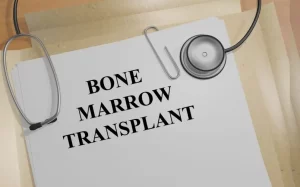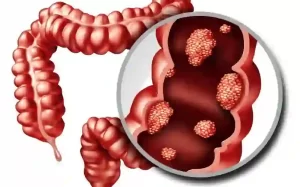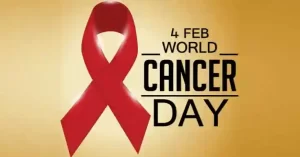The definition of Oncology is the study of cancer and its treatment in medical science. Cancer develops in the body and spread to various organs. The initial site of the tumour is called the primary site of the cancer and further the spread of cancer leads to the secondary manifestations of the disease. Cancer cells are abnormal cells that grow uncontrollably forming a mass called a tumour.
Normally cells are making up the human body structure and divide and grow accordingly. But any abnormal trigger or genetic predisposition can causes these cells to alter their growth. Cancerous tumour can be either benign or malignant and can grow and spread to other parts of the body. Cancer may also spread through the bloodstream to distant parts of the body. These parts may include the bones, liver, lungs, or brain. Some types of cancer do not form a tumour like leukaemia’s, lymphoma, and myeloma.
Who is an oncologist and types of oncologists?
An oncologist is a doctor who treats cancer and manages the patient care once a diagnosis is made of the same
What are the types of specialities under oncology?
The main field of oncology has three major areas for treatment of tumours:
- Medical Oncology deals with treatment of the cancer site with use of chemotherapy or other medications, or targeted therapy, surgical, and radiation. A medical oncologist handles this speciality
- Surgical Oncology deals with removal of tumour and nearby tissue during a surgery as well as ascertains diagnosis with carrying our certain biopsies. A surgical oncologist handles this speciality.
- Radiation oncology treats cancer using radiation therapy. A radiation oncologist handles this speciality.
Other branches which can come under oncology are
- Gynaecologic oncology which treats gynaecologic cancers, such as uterine cancer and cervical cancer.
- Paediatric oncology treats cancer in children. Some types of cancer occur most often in children include brain tumours, leukaemia, osteosarcoma, and Ewing’s sarcoma.
- Haematology –oncology which treats and diagnoses all types of blood cancers, such as leukaemia, lymphoma, and myeloma.
What does an oncologist do in the treatment of cancer?
The role of the oncologist is to supervise a patient’s care from right from the diagnosis of cancer and throughout the course of the disease.
What is the basic role of the oncologist?
The oncologist’s role includes the following:
The oncologist will explain the cancer diagnosis and its stage to the patient and will plan course of treatment modalities after providing the patient with all relevant treatment options and the recommendations. He plays a vital role in Delivering high-quality, compassionate care and assists the patient in managing cancer-related pain and other symptoms or treatment side effects of the treatment regime.
At Wockhardt hospital the department on oncology treats the patient through a multidisciplinary team approach where there is a team of oncologists .A person with cancer is often treated by a team of oncologists who specialize in different areas of oncology. This team approach at our units of Wockhardt hospital includes is helpful a combination of surgery, chemotherapy, and radiation therapy. The team also includes supportive staff, nursing staff, pathology and referrals from other specialities for accuracy and efficiency of the treatment.
What are Types of Cancers in oncology?
Four main types of cancer are in oncology:
- Carcinomas: Rumours that are found on the surface of internal organs and glands egg. Prostate cancer, breast cancer, lung cancer, and colorectal cancer.
- Sarcomas: Tumour that develops in fat, muscles, nerves, tendons, joints, blood or lymph vessels, cartilage, or bone.
- Leukaemia’s: cancer of the blood
- Lymphomas: Lymphoma is a cancer that begins in the lymphatic system
What are modalities in Oncology treatment?
In the branch of oncology the onco team will devise a treatment plan by the oncologist?
Treatment options for your type and stage of cancer. Some of these options may include:
Treatment through Surgery in Surgical Oncology where the removal of the tumour and surrounding tissue is carried out. The goal of the surgical oncologist is to diagnose cancer, find its location, remove the tumour following prerequisites (after understanding whether it is operable or not) and ascertaining its spread. The end result would be to restore the body’s appearance or function.
1) Surgical Oncology can be used for diagnosis of certain cancer through the biopsy procedures carried out through the surgical procedure which could be with an incisional biopsy or excisional biopsy. The importance of staging can be find out through surgery which ascertains the Staging surgery is performed the size of the tumour and its spread (lymph nodes).
2) In surgical oncology removal of the tumour can be done for primary or curative treatment for the tumour.
In conventional surgery, the oncosurgeon makes large incisions through skin, muscle, and sometimes bone. Today less-invasive techniques may speed recovery and reduce pain afterwards. Types of minimally invasive surgery like laparoscopic minimal invasive surgery, cryosurgery and laser surgery are often now implemented in oncosurgery.
Radiation therapy in Radiation oncology:
In Radiation oncology, High-energy radiation through rays are given on tumour site to destroy cancer cells, in this type of treatment is called radiation therapy. In this type of oncology treatment specific number of treatments given over a set period of time. The goal of the radiation oncologist would be that the radiation destroys the cancer cells and slow down the growth of the tumour, without harming nearby healthy tissue. This type of therapy is given after the main treatment to target any remaining cancer cells and to shrink the tumour size.
Types of radiation therapy in radiation Oncology include:
External-beam radiation therapy is the most common type of radiation treatment. It delivers radiation from a machine located outside the body on the target site.
Internal radiation therapy also known as brachytherapy. Radioactive material is placed into the cancer itself or into the tissue surrounding it to through implants.
Chemotherapy in Medical oncology: Chemotherapy is the use of drugs to destroy cancer cells. It works by keeping the cancer cells from growing and dividing to make more cells. The main goal of chemotherapy is to get rid of all the cancer and keep it from recurring. Chemotherapy can be either standard chemotherapy, traditional chemotherapy, or cytotoxic chemotherapy. Medical Oncologists use Chemotherapy to delay or slow down cancer growth. In medical oncology chemotherapy given to the patient depends upon, dose, and treatment schedule depends on many factors such as type of cancer, size, general health of the patient, side effects
In medical oncology chemotherapy is given through:
Intravenous (IV) chemotherapy or arterial, Oral chemotherapy, Injected chemotherapy, topical chemotherapy.
Other treatments protocols in Medical Oncology:
– Hormone therapy. These treatments change the amount of hormones in your body. Hormones are chemicals your body makes naturally. They help control the activity of certain cells or organs. Doctors use hormone therapy because hormone levels control several types of cancers.
– Targeted cells of gene therapy
– Immunosuppressant
Palliative care is an important aspect of cancer treatment and focuses on focuses on preventing, managing, and relieving the symptoms of cancer and the side effects of cancer treatment. It also provides comprehensive support to people living with cancer and their family, friends, and caregivers.
Oncology Services at Wockhardt Hospital:
Wockhardt Hospitals, a chain of tertiary care super-specialty hospitals has more than 25 years of experience in the creation and management of Super Specialty Hospitals in India.
At Wockhardt Hospital we believe that diagnosis and management of a cancer patient does not end with the treatment of cancer, and hence it follows a well-designed patient counselling services and support system and forms part of goals in our oncology department. Our oncology team at Wockhardt Hospital uses cutting edge technology & latest pharmaceuticals to provide complete treatment for of cancer.
At Wockhardt Hospitals our esteemed and dedicated team of oncologist team, provides both inpatient and outpatient services for patients diagnosed with cancer. This care is delivered by a multidisciplinary team of oncologists working together. Our oncologists at Wockhardt hospital along with expertise in this vast field and supported with advanced technology assist in providing the best quality patient care to our cancer patients in administration of chemotherapy and radiation oncology.
The Department of Surgical Oncology is the only surgical oncology department for cancer treatment in North Mumbai and it aims to provide holistic, all round surgical care for solid tumours comprising of Head & Neck Cancers, Breast Cancer and Cancers of the female reproductive organs. Our qualified surgeons all have specialized fellowship training and work in a multidisciplinary setting with other specialists to provide the latest treatments and innovations in surgical cancer care.
Our centres at Wockhardt Hospital also provide the nutrition support and other therapies to manage the side effects of cancer treatment.
Latest surgical techniques through minimal invasive surgery, stem cell transplantation and latest chemotherapy adjuvants form part of the care in the oncology speciality at our units in Wockhardt Hospital. Wockhardt Hospital specializes in treatments for all haematological disorders such as different types of anaemia, haematological malignancies, bleeding and thrombotic disorders and Bone marrow and stem cell transplantation.
Wockhardt Hospitals have been regarded as centers of excellence in medical science with facilities in North Mumbai (Mira road), South Mumbai (Mumbai Central), Navi Mumbai (Vashi), Nagpur, Nasik, Rajkot and Surat. Wockhardt Hospitals is having state-of-the-art infrastructure whose prime objective is patient safety first and quality of care at the core of its strategy. The guiding philosophy is to serve and enrich the Quality of Life of patients and to make life win.




